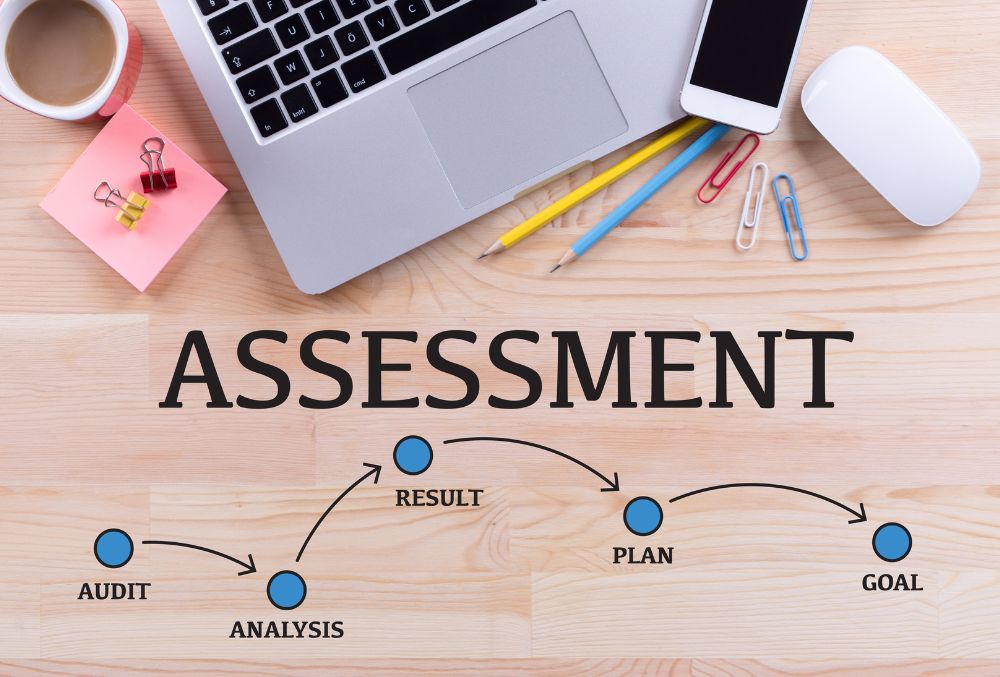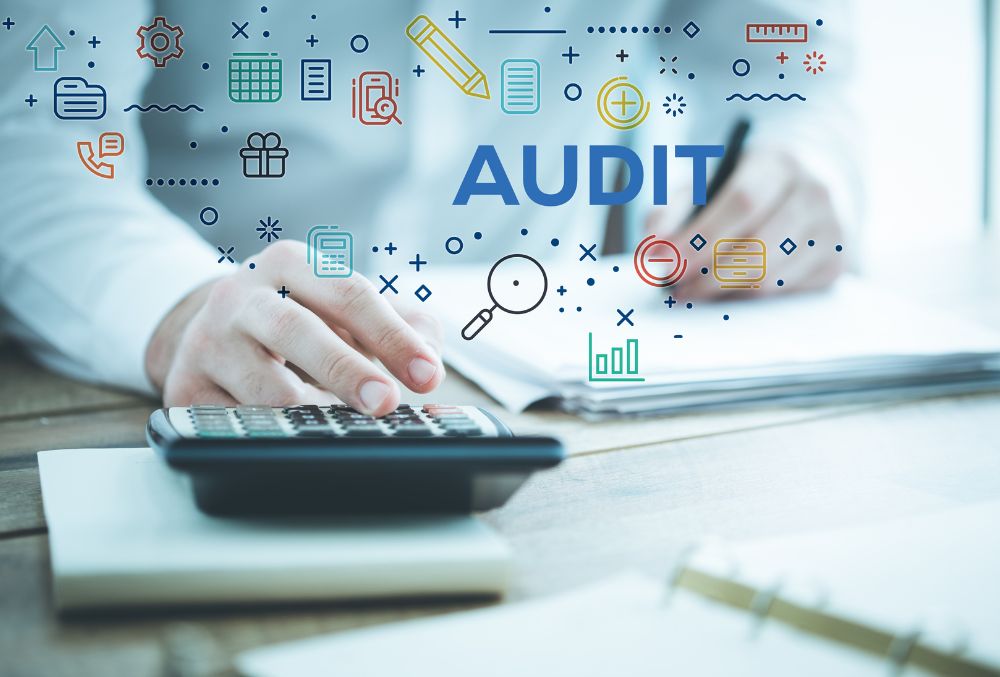Handling tax audits and assessments can be quite challenging, but with the right strategy, you can effectively navigate through the process. It’s important to be well-prepared and organized when dealing with tax audits and assessments. Here are some expert tips to help you efficiently manage tax audits and assessments:
1. Understand the Process
Preparing for a tax audit can help reduce stress and ensure you present your case effectively.
Know Your Rights:
As a taxpayer, it is crucial to have a comprehensive understanding of your rights. You have the right to fair treatment, which means you should be treated impartially and without discrimination. Additionally, you have the right to challenge any decisions made by tax authorities if you believe they are incorrect. This could involve appealing an assessment, objecting to a decision, or requesting a review of your case. Understanding and asserting your rights as a taxpayer is essential for maintaining a just and equitable tax system.
Understand the Audit Process:
Tax audits can vary in their specific procedures from one country to another, but generally, they involve thoroughly examining an individual or business’s financial records to ensure that they are attached to all relevant tax laws and regulations. During a tax audit, government authorities review income, expenses, deductions, and other financial data to confirm that the taxpayer has accurately reported their financial information and paid the correct tax amount.
2. Stay Organized
Keep Accurate Records:
It is essential to keep thorough, well-organized records of all financial transactions to ensure accurate tracking and reporting. This practice includes diligently maintaining comprehensive records of receipts, invoices, and bank statements, as well as all tax returns filed during each fiscal year. By doing so, you create a clear and accessible financial history that can aid in budgeting, tax preparation, and any potential audits. Organizing these documents meticulously helps ensure that you have all the necessary information at hand when required.
Document Everything:
Ensure that every financial transaction is documented. Gather all relevant documents for the years being audited, including:
- Tax returns
- W-2s, 1099s, and other income statements
- Receipts for deductions and credits claimed
- Bank statements and financial records
- Any correspondence from the tax authority
Good record-keeping practices are essential, as they play a vital role in substantiating your claims during the audit process. Proper documentation can greatly enhance your ability to defend your financial positions and ensure a smoother audit experience.
3. Review Your Tax Returns
Double-Check Before Submission:
Before submitting your tax returns, it’s important to carefully go through them to check for any mistakes or missing information. Doing so can help minimize the likelihood of being selected for an audit.
Identify Red Flags:
When reviewing your financial records, keep an eye out for anything that could potentially raise red flags, such as significant deductions, substantial charitable contributions, or exceptionally high expenses. It’s important to thoroughly examine these items to ensure accuracy and compliance with regulations.
4. Seek Professional Help
Hire a Tax Professional:
If you find yourself facing the prospect of an audit, consider enlisting the services of a qualified tax professional, such as a certified public accountant (CPA) or a tax attorney, to represent you and provide expert guidance throughout the process.
Consult an Expert Early:
Engaging with a knowledgeable professional early in the audit process can be incredibly beneficial, helping you avoid common pitfalls and mistakes while ensuring that you handle the audit more efficiently and effectively from the start.

5. Respond Promptly and Cooperatively
Acknowledge the Audit Notice:
Upon receiving an audit notice, it is important to take immediate action and respond in a timely and appropriate manner. Failure to address the notice could result in substantial penalties, fines, and additional complications that may exacerbate your circumstances. Therefore, it is essential to carefully review the audit notice and take the necessary steps to comply with the requirements outlined in the notice.
Cooperate with the Auditor:
When interacting with the auditor, it is crucial to uphold a courteous and cooperative demeanor at all times. By doing so, you demonstrate your willingness to engage in a productive dialogue. Providing the requested information promptly, while also being respectful in your communication, can significantly ease the overall process.
6. Prepare for the Meeting
Review the Scope of the Audit:
Take the time to understand the specific aspects of your tax return that are being audited. Focus on gathering the necessary documentation that pertains directly to those areas. Being prepared will demonstrate your willingness to cooperate and provide clarity during the audit meeting.
Be Honest and Transparent:
Remember to always be transparent and avoid hiding information or providing false documentation. Transparency is key to ensuring a fair assessment.
7. Understand Potential Outcomes
Know the Possible Outcomes:
The audit process may lead to a variety of outcomes, including no changes to your tax return, an assessment indicating that additional taxes are owed, or even a refund due to overpayment. It is essential to be prepared for any of these potential outcomes, as each scenario carries its implications for your financial situation. By understanding that the results of an audit can vary widely, you can approach the process with the right mindset and readiness to respond accordingly, regardless of whether you owe more taxes or are entitled to a refund.
Negotiate if Necessary:
If you find yourself in a position where you disagree with the findings of the audit, rest assured that you have the option to negotiate or appeal those results. It is crucial to take this step seriously, as it can significantly impact your financial obligations. To navigate this process effectively, work closely with your tax professional, who can provide valuable insights and guidance. They will help you understand your available options in detail, allowing you to make informed decisions about how to proceed. Engaging in this collaborative effort will empower you to advocate for your interests during the audit review.
8. Handle Assessments Promptly
Pay Any Owed Taxes:
If the audit leads to an assessment indicating that you owe additional taxes, it is essential to take action promptly and pay the amount owed without delay. By ensuring that your payment is made quickly, you can help prevent the accrual of additional penalties and interest charges that could significantly increase your overall financial liability. Timely payment not only helps you avoid these extra costs but also demonstrates your willingness to comply with the tax obligations established by the audit findings. Thus, addressing the payment issue as soon as possible is a smart strategy to protect your financial interests.
Set Up a Payment Plan:
If you find yourself in a situation where you are unable to pay the full amount that is owed, it is important to take forceful steps by discussing payment plan options with the tax authorities. They often have programs in place that allow taxpayers to settle their obligations over time, making it more manageable for those who may be facing financial difficulties. Engaging in a conversation about these options can lead to a workable agreement that suits your circumstances. By reaching out to the tax authorities and expressing your situation, you open the door to potential alternatives that can help you fulfill your tax responsibilities without unnecessary stress on your finances.

9. Appeal if Necessary
Understand the Appeal Process:
If you find yourself in disagreement with the assessment that has been made, it is important to know that you have the right to appeal the decision. This right is a crucial part of the process and allows you to contest the findings. The specific process for appealing can vary significantly depending on the jurisdiction in which you are located, so it is essential to familiarize yourself with the rules that apply to your situation. Generally speaking, the appeal process typically involves submitting additional documentation that supports your case or presenting legal arguments that challenge the assessment. Engaging in this process can provide you with an opportunity to potentially alter the outcome to your advantage.
Consult a Professional:
If you are considering the possibility of filing an appeal, it is highly advisable to collaborate with a tax attorney or a certified public accountant (CPA) who possesses the expertise to guide you effectively through the entire process. Engaging with a professional in this manner can make a significant difference in your ability to navigate the complexities of the appeals process. Such experts can provide you with valuable insights and strategies that are tailored to your specific situation, ensuring that you can present the strongest case possible. By relying on their knowledge and experience, you can feel more confident in your approach and increase your chances of achieving a favorable outcome regarding your appeal.
10. Learn from the Experience
Identify Areas for Improvement:
Consider utilizing the audit as a valuable learning experience that can help you enhance your record-keeping practices and improve your overall tax compliance moving forward. By reflecting on the findings of the audit, you can identify areas where your documentation may have been lacking or where your understanding of tax regulations could be improved. This insight can serve as a guide for making necessary adjustments to your financial practices, ensuring that you maintain accurate and thorough records in the future.
Implement Better Practices:
Take into account the importance of implementing better financial practices to help you avoid the possibility of future audits and assessments, which can be both time-consuming and stressful. By establishing more rigorous financial protocols and maintaining meticulous records, you can significantly reduce the likelihood of drawing the attention of tax authorities
Final Thoughts
Tax audits and assessments can be stressful, but with preparation, organization, and professional assistance, you can manage them effectively. Keep calm, cooperate, and seek expert advice when necessary.









